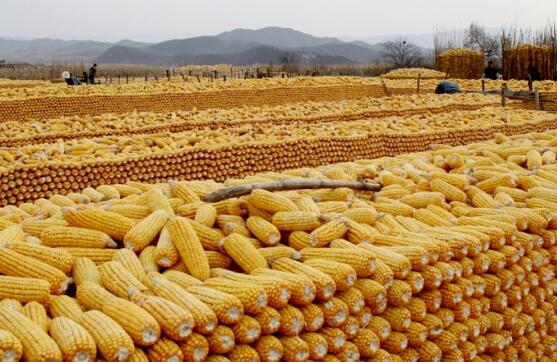According to China Customs, China imported
28,985 tonnes of corn in July 2016, down 56.7% MoM and 97.4% YoY. China's
import volume of corn once hit a monthly record high in April this year since
2014. However, after that the figure slid quickly. Data showed that the total
import volume of corn amounted to 2.93 million tonnes in Jan.-July 2016, down
21.9% YoY.

Source: Baidu
China's imports of corn, Jan. 2014-July
2016

Source: China Customs
Imported corn substitutes were popular
among domestic corn-consuming enterprises. Their import volumes kept rising in
the past few years, mainly because:
1. Their prices were lower than corn price;
2. The import quota of corn is 7.50 million
tonnes per year in China, while there is no quota limit on imported corn substitutes.
However, import volumes of some substitutes
for corn recorded large YoY falls in 2016:
-
Sorghum: 4.49 million tonnes, down 30.7%
-
Barley: 2.55 million tonnes, down 61.6%
-
DDGS: 1.92 million tonnes, down 46.0%
China's import volumes of sorghum, barley
and DDGS, 2014-2016 (Jan.-July)

Source: China Customs

Reasons behind the rapidly declined import
volumes of corn and its substitutes in Jan.-July 2016:
1. Falling corn price
According to CCM's price monitoring,
China's market price of corn has slid to USD291.35/t (RMB1,945/t), down 24.3%
YoY in H1 2016. Therefore, substitutes no longer enjoy price advantage as they
did in the past few years when corn price stood high.
2. Sufficient market supply of corn
China's corn inventories for temporary storage
already hit a record high of 250 million tonnes, and frequent auctions of
overstored corn and temporarily-stored corn make market supply sufficient in
the country. Notably, since transaction rates of corn auctions in July and Aug.
were lower than 20%, it can be seen that domestic enterprises no longer
urgently demand for corn.
What's more, substitutes cannot completely replace
corn. In theory, the substitution ratio of barley and corn in feed processing
is 1.1:1. Nevertheless, since barley powder is highly viscous, it is difficult
for animals to absorb. In other words, enterprises will give preference to corn
when market supply is abundant.
At present, de-stocking is an urgent task
for China. As corn inventories and newly harvested corn keep flowing into the
market, import volumes of corn and its substitutes will further decline. CCM
forecasted that their import volumes would decrease further in the near future.
This article comes from Corn Products China News 1609, CCM

About CCM:
CCM is the leading market intelligence provider for China’s
agriculture, chemicals, food & ingredients and life science markets. Founded in 2001, CCM offers a
range of data and content solutions, from price and trade data to industry
newsletters and customized market research reports. Our clients include Monsanto,
DuPont, Shell, Bayer, and Syngenta. CCM is a brand of Kcomber Inc.
For more
information about CCM, please visit www.cnchemicals.com or get in touch with us
directly by emailing econtact@cnchemicals.com or calling
+86-20-37616606.
Tag: corn